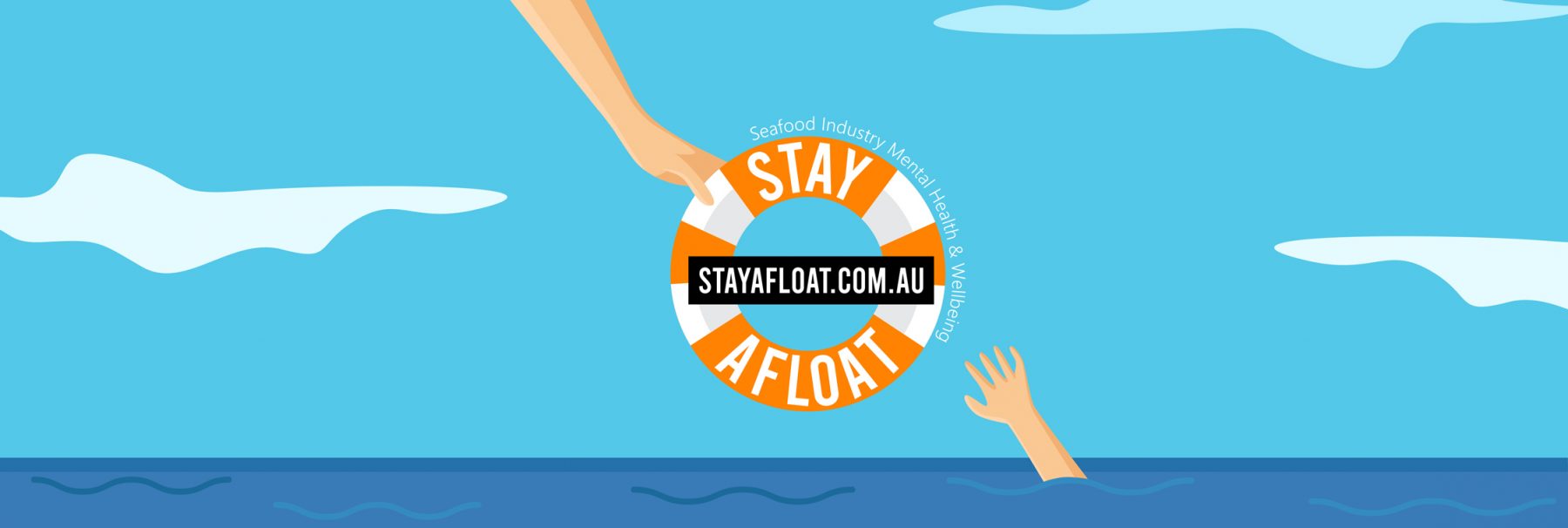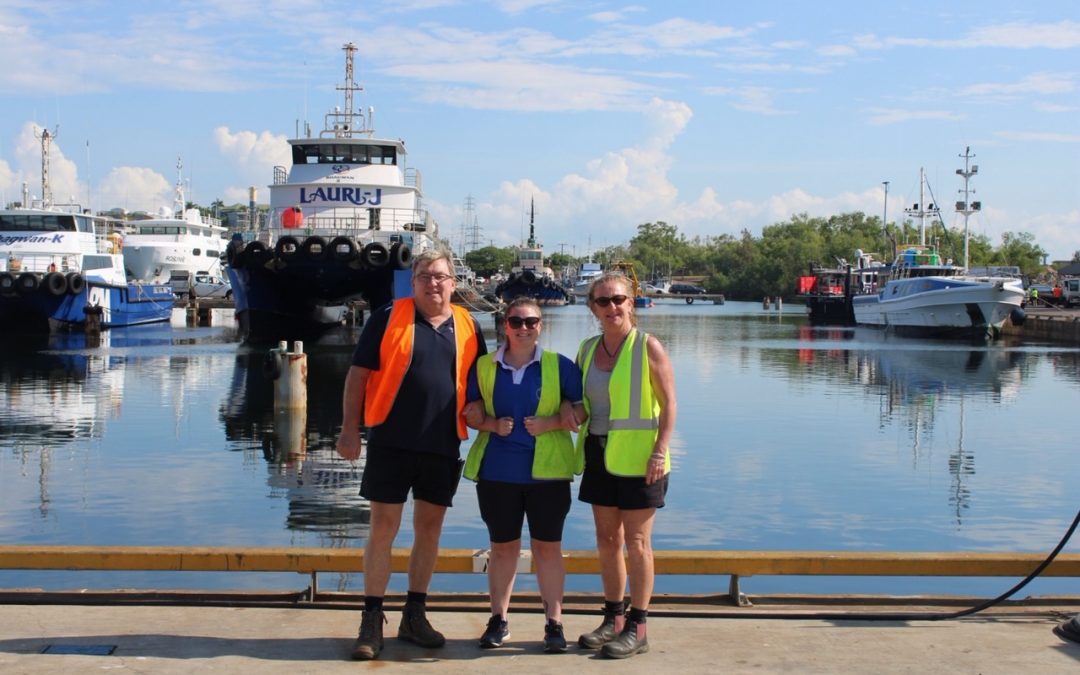IMAGE: Stay Afloat Darwin trusted advocates L-R – Michael O’Brien, Toni Hedditch, Fran Davis.
Stay Afloat Australia, a mental health and wellbeing Trusted Advocate network for the Australian commercial fishing industry has officially launched in three pilot communities around the country, including Darwin, NT, by Seafood Industry Australia (SIA), in partnership with Women in Seafood Australasia (WISA), and supported with funding from the Australian Government Department of Health’s Mental Health Program.
As of this week, three trusted advocates have been appointed in Darwin, have received mental health first aid training and would now act as mental health support coordinators in each community.
“It’s great to see industry advocates hitting the ground running, and ensuring our hardworking fishers have access to the help they need,” Assistant Minister Duniam said.
“We know studies have shown that a range of factors have led to poor levels of mental health among Australia’s commercial fishers.
“That’s why we committed $600,000 of funding to the cause at the last Federal Election to help those in the high-pressure industry.
“Commercial fishers have had a difficult year navigating the challenges posed by COVID-19, and this program is essential for reducing barriers and helping those that have been impacted.”
As part of the Federal Government’s 2019 Budget, SIA was successful in seeking funding for an industry-specific mental health pilot program for commercial fishers, similar to that provided to land based farmers.
“Research has shown Australia’s commercial fishers experience twice the base-rate of psychological stress of any other sector, and this is not okay,” Ms Papacosta said.
“We understand the pressures our fishers face are unique to industry, however a third of fishers who were suffering hadn’t reached out for support because they felt health professionals wouldn’t understand them.
“We know supports exist, but our fishers are a stoic bunch and we needed to develop a specialised program that would encourage them to connect with existing services, which is exactly what our Stay Afloat program does. As an industry we need people on the ground in our fishing communities who are trained to look out for warning signs and know how to approach a conversation with someone regarding their mental health.
“The Stay Afloat pilot program has been specially developed to help break the stigma associated with poor mental health within industry, develop a network of trusted industry advocates who fishers could reach out to help them find support, and educate primary healthcare networks about industry pressures.”
Following industry consultation, three iconic fishing communities were selected as the pilot program’s focus. Within each community three trusted advocates have been identified, have received mental health first aid training, and will act as mental health support coordinators on the ground.
“The Trusted Advocates will provide the local Darwin industry with information and referrals to local support services, and coordinate activities to build awareness of and reduce the stigma of mental illness within their communities,” SIA Stay Afloat program manager Jo Marshall said.
“Talking about mental health is not always the easiest conversation to have, but now more than ever it is the most important conversation to have. We need to educate, raise awareness and start building a network of support, because currently the challenges our industry faces are not well understood by those outside the industry.
“Overarchingly there are commonalities to the issues each focus community faces, there is stress related to uncertainty about future changes to regulations, access to fishing grounds and red tape, however there are also localised issues which are unique to each community that the Trusted Advocates are each familiar with and can speak to.”
Michael O’Brien, Toni Hedditch and Fran Davis are the Trusted Advocates for the Darwin program and are looking forward to providing support to their colleagues, while making the topic of mental health and wellness more openly discussed within industry.
“I feel mental health assistance is not happening within fishing at any level quick enough, and I know the industry needs support,” Mr O’Brien said.
“There’s pressure being faced from all sections – fisheries management, crew shortages, Covid-19, climate change – and you can see it build up.
“I want to give industry and its people the knowledge and assistance to seek help from the right people. To let industry know they are not alone and do not need to be embarrassed to discuss mental health.
“Even if it is only one person who seeks help it will be well worth the effort.”
Commencing in 2021, SIA will make available mental health first aid training for members of the national seafood community, along with a series of Community Resilience Grants which will provide funding for industry events to be held where mental health information is available, or a speaker talks about their lived experience.
Ms Papacosta said the pilot program will help to inform ongoing national industry-specific mental health and wellbeing programs, projects and outreach activities.
“We look forward to learning from this pilot around which approaches and strategies work best for the industry,” she said.
“SIA will work hard to ensure ongoing funding to mental health services for the fishing industry at the end of the pilot program in 2022. We would like to thank the Australian Government for their ongoing support of Australia’s commercial fishing industry.”
<ENDS>
If you, or someone you know needs help contact a crisis helpline:
- Lifeline – 13 11 14
- Beyond Blue – 1300 224 636
- MensLine -1300 78 99 78
- If there is immediate danger please call 000 or visit your nearest hospital emergency department.
For more information or to organise an interview with Ms Papacosta or Ms Marshall please contact
Seafood Industry Australia, Media and Communications Manager Jessica McInerney
E: jessica@seafoodindustryaustralia.com.au M: 0420 695 431

